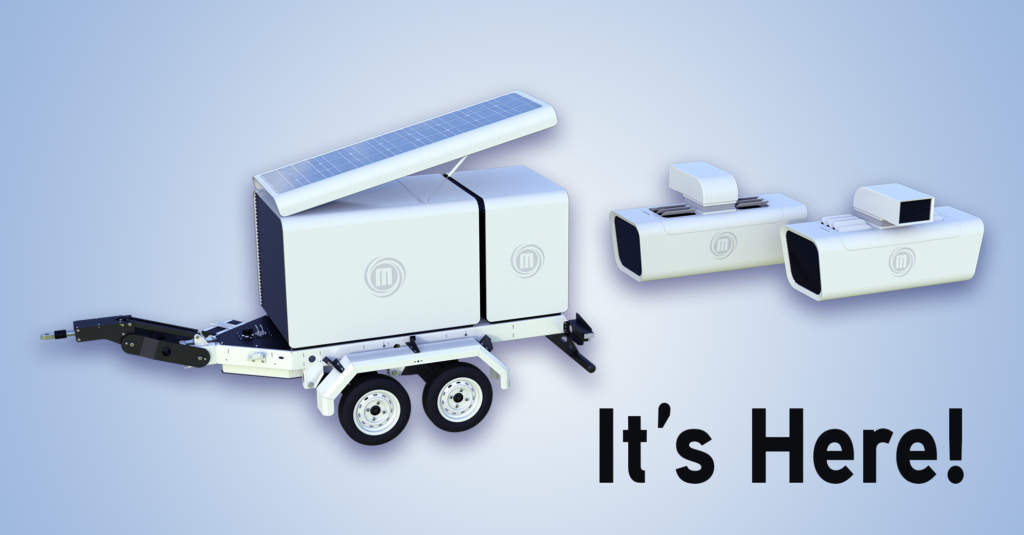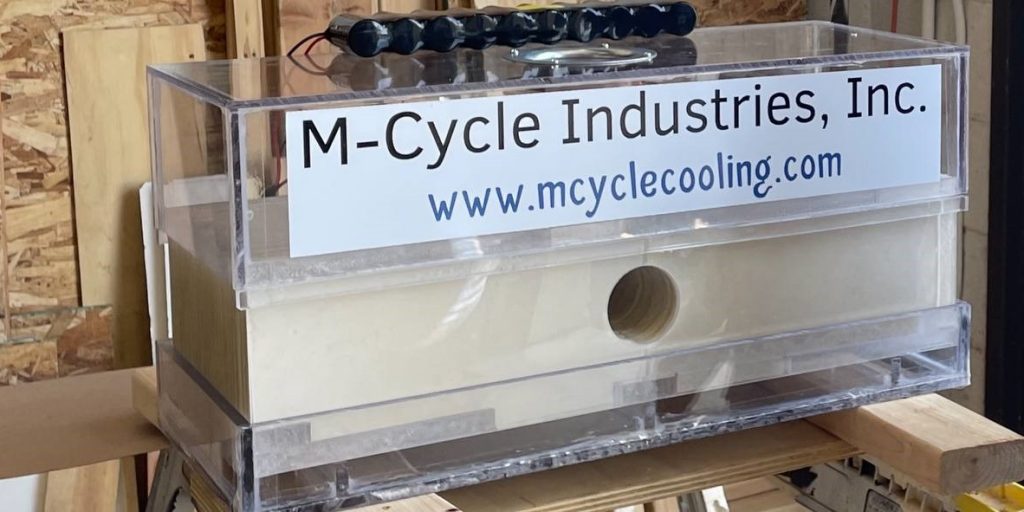Evaporative cooling solution for mobile AC?
- PostedPublished 2 November 2021
A Colorado-based start-up has come up with an efficient and effective evaporative cooler that could be adapted for mobile applications and has won this year’s Airbus Sustainable Mobility Challenge.
Best suited to the kind of hot, dry climates found across much of Australia, the M-Cycle cooler is claimed to overcome the high water consumption and bulk of old-school ‘swamp coolers’.

Using an intricate network of separated wet and dry channels through which air is passed using a small fan, the M-Cycle cooler is designed to improve both water and energy efficiency over traditional evaporative systems while being compact enough to fit to a road vehicle.
Said to require 11 times less water than a swamp cooler of equivalent effectiveness end energy-efficient enough to cool a caravan with power from a small single solar panel, the M-Cycle design is claimed to have reached an energy efficiency ratio of 80.
Because there is no refrigerant, potential environmental impact at end-of-life is also reduced.
A target for M-Cycle is electric buses, which dedicate up to 28 per cent of their energy consumption to running the air-conditioning or, in some cases, have a dedicated diesel generator to drive it, negating any zero-emissions claims of electrifying the vehicle.

M-Cycle Industries’ co-founder and CEO Stan May told TU Automotive that a production-ready prototype of an M-Cycle cooler suitable for electric buses could be developed in 12-18 months, in collaboration with an OEM.
Industrial researcher at the University of Adelaide, Hamed Sadighi Dizaji, said Australia could be a good potential early market for M-Cycle coolers but their reliance on being able to evaporate the water would require adaptation for humid regions.
A desiccant module would need to be added, which would add complexity and increase energy consumption, though the water could be more easily recycled and require less frequent top-ups in this scenario.
Sub-zero temperatures would necessitate the addition of a heating module to prevent the water from freezing.
These considerations would require the integration of M-Cycle coolers to be tailored to the local in which they would be operating. This makes them more suited to stationary applications or local public transport that will spend its entire lifecycle in a small geographic area.
Ongoing development of refrigerant-based vapour compression air-conditioning systems promises to yield further efficiencies and the technology’s broad acceptance among the automotive manufacturers suggests it is here to stay.
- CategoriesIn Latest News
- Tagsair-conditioning, evaporative cooling


